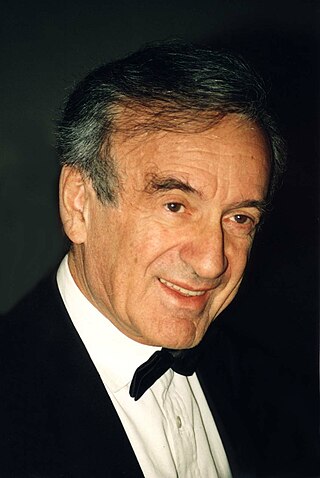
Eliezer "Elie" Wiesel was a Romanian-born American writer, professor, political activist, Nobel laureate, and Holocaust survivor. He authored 57 books, written mostly in French and English, including Night, a work based on his experiences as a Jewish prisoner in the Auschwitz and Buchenwald concentration camps.

Holocaust theology is a body of theological and philosophical debate concerning the role of God in the universe in light of the Holocaust of the late 1930s and early 1940s. It is primarily found in Judaism. Jews were killed in higher proportions than other groups; some scholars limit the definition of the Holocaust to the Jewish victims of the Nazis as Jews alone were targeted for the Final Solution. One third of the total worldwide Jewish population were killed during the Holocaust. The Eastern European Jewish population was particularly hard hit, being reduced by ninety percent. While a disproportionate number of Jewish religious scholars were killed, more than eighty percent of the world's total, the perpetrators of the Holocaust did not merely target religious Jews. A large percentage of the Jews killed both in Eastern and Western Europe were either nonobservant or had not received even an elementary level of Jewish education.
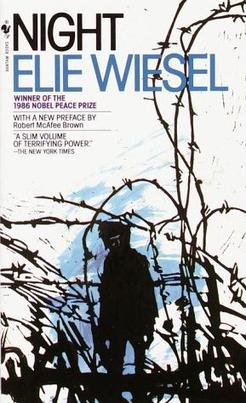
Night is a 1960 memoir by Elie Wiesel based on his Holocaust experiences with his father in the Nazi German concentration camps at Auschwitz and Buchenwald in 1944–1945, toward the end of the Second World War in Europe. In just over 100 pages of sparse and fragmented narrative, Wiesel writes about his loss of faith and increasing disgust with humanity, recounting his experiences from the Nazi-established ghettos in his hometown of Sighet, Romania, to his migration through multiple concentration camps. The typical parent–child relationship is inverted as his father dwindled in the camps to a helpless state while Wiesel himself became his teenaged caregiver. His father died in January 1945, taken to the crematory after deteriorating from dysentery and a beating while Wiesel lay silently on the bunk above him for fear of being beaten too. The memoir ends shortly after the United States Army liberated Buchenwald in April 1945.

The United States Holocaust Memorial Museum (USHMM) is the United States' official memorial to the Holocaust. Adjacent to the National Mall in Washington, D.C., the USHMM provides for the documentation, study, and interpretation of Holocaust history. It is dedicated to helping leaders and citizens of the world confront hatred, prevent genocide, promote human dignity, and strengthen democracy.
The Holocaust has been a prominent subject of art and literature throughout the second half of the twentieth century. There is a wide range of ways–including dance, film, literature, music, and television–in which the Holocaust has been represented in the arts and popular culture.
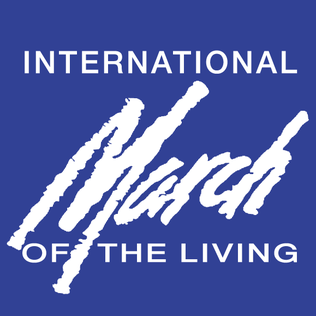
The March of the Living is an annual educational program which brings students from around the world to Poland, where they explore the remnants of the Holocaust. On Holocaust Memorial Day observed in the Jewish calendar, thousands of participants march silently from Auschwitz to Birkenau.
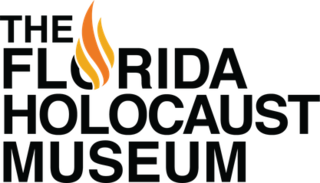
The Florida Holocaust Museum is a Holocaust museum located at 55 Fifth Street South in St. Petersburg, Florida. Founded in 1992, it moved to its current location in 1998. Formerly known as the Holocaust Center, the museum officially changed to its current name in 1999. It is one of the largest Holocaust museums in the United States. It was founded by Walter and Edith Lobenberg both of whom were German Jews who escaped persecution in Nazi Germany by immigrating to the United States. Holocaust survivor Elie Wiesel served as Honorary Chairman and cut the ribbon at the 1998 opening ceremony. The Florida Holocaust Museum is one of three Holocaust Museums that are accredited by the American Alliance of Museums. The museum works with the local community and survivors of the Holocaust to spread awareness and to educate the public on the history of the Holocaust.

Day, published in 1962, is the third book in a trilogy by Romanian-born American writer and political activist Elie Wiesel—Night, Dawn, and Day—describing his experiences and thoughts during and after the Holocaust.
Johanna Reiss is a Dutch-American writer whose work focuses on her experiences as a Jewish child during the Second World War. Her books have been compared to the writing of Anne Frank.
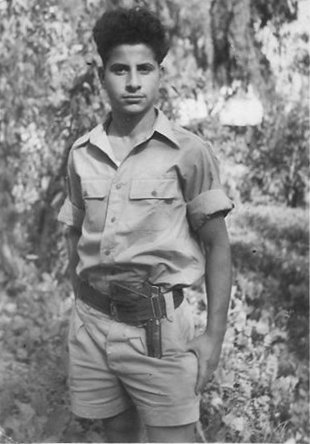
Beni Virtzberg was an Israeli forester, Holocaust survivor and writer who was among the first in Israel to write an autobiographical account of his experiences during and after the Holocaust. He began writing his book Migei Haharega Lesha'ar Hagai in the wake of the Adolf Eichmann trial, when court testimony by survivors prompted Israelis to openly and publicly discuss what the survivors had lived through.
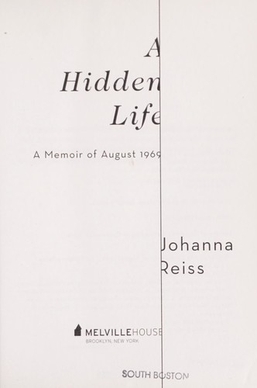
A Hidden Life is a memoir by Dutch-American author Johanna Reiss. Reiss won the Newbery Medal for her account of her experiences as a child during the Holocaust, The Upstairs Room, which was followed by the sequel The Journey Back, both published by HarperCollins.

Vladka Meed was a member of Jewish resistance in Poland who famously smuggled dynamite into the Warsaw Ghetto, and also helped children escape out of the Ghetto.

Leon Schagrin is a Holocaust survivor and Jewish advocate in the State of Florida. He is also a co-founder of the Holocaust Survivors of South Florida organization.
Herman Kahan was a Romanian-born Norwegian businessman, rabbi, author, and Holocaust survivor.
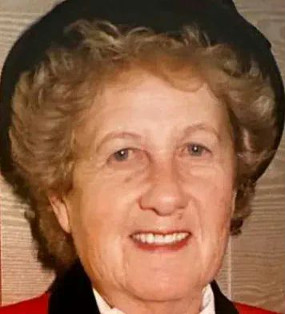
Judith Hemmendinger was a German-born Israeli researcher and author who specialised in child survivors of the Holocaust. During World War II, she was a social worker and refugee counselor for the Œuvre de secours aux enfants (OSE), a French Jewish children's aid organization based in Geneva, and from 1945 to 1947, she directed a home for child survivors of Buchenwald in France. She authored books and papers on the Holocaust experiences and later lives of child survivors. She was awarded the French Legion of Honor in 2003.
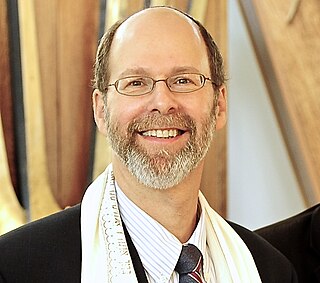
Eli Rubenstein is a Holocaust educator, writer, filmmaker, and activist. He is currently the religious leader of Congregation Habonim Toronto, a Toronto synagogue founded by Holocaust survivors, served as the Director of Education for March of the Living International since 1988, and currently serves as National Director of March of the Living Canada from 1988 to 2024.
"Like sheep to the slaughter" is a phrase that refers to the idea that Jews went passively to their deaths during the Holocaust. It derives from a similar phrase in the Hebrew Bible that favorably depicts martyrdom in both the Jewish and Christian religious traditions. Opposition to the phrase became associated with Jewish nationalism due to its use in Josippon and by Jewish self-defense groups after the 1903 Kishinev pogrom. During the Holocaust, Abba Kovner and other Jewish resistance leaders used the phrase to exhort Jews to fight back. In postwar Israel, some demonized Holocaust survivors as having gone "like sheep to the slaughter" while armed resistance was glorified. The phrase was taken to mean that Jews had not tried to save their own lives, and consequently were partly responsible for their own suffering and death. This myth, which has become less prominent over time, is frequently criticized by historians, theologians, and survivors as a form of victim blaming.
Sigmund Strochlitz was a Polish-born Jewish American entrepreneur, political activist, and Holocaust survivor. He served on the U.S. President's Commission on the Holocaust and the U.S. Holocaust Memorial Council from 1978 to 1986, establishing the United States Holocaust Memorial Museum. Strochlitz was the first chair of the council's Days of Remembrance committee, persuading state and federal officials to hold annual Holocaust commemorations in all fifty state capitals and in Washington, D.C. in 1985 and every year since. According to the Encyclopedia Judaica, Strochlitz was a "major figure in institutionalizing Holocaust commemoration" throughout the United States.

Tova Friedman is a Jewish American therapist, social worker, author, and academic born in Poland. She is a Holocaust survivor who was sent to the Auschwitz concentration camp. Friedman taught at the Hebrew University of Jerusalem and later served as the director of the Jewish Family Service of Somerset and Warren Counties.














